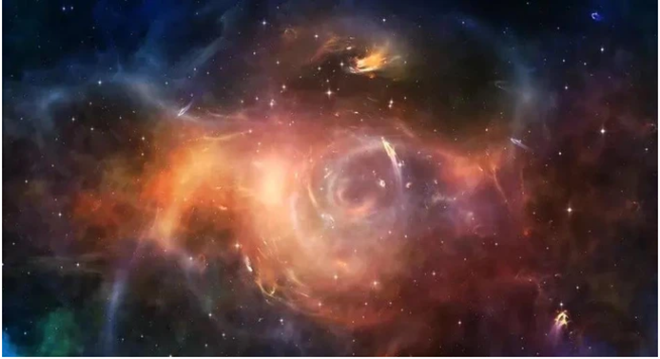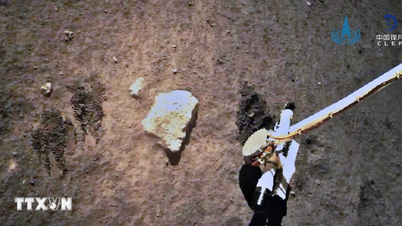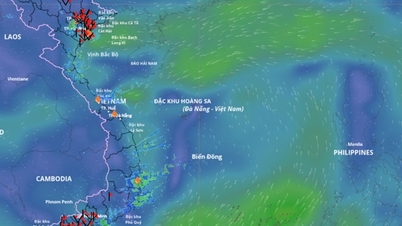According to their assessment, this is one of the farthest and most powerful explosions ever detected.
In radio astronomy, a fast radio burst is a transient radio pulse with a duration ranging from one-thousandth of a second to three seconds, caused by some poorly understood high-energy astrophysical process. The first fast radio burst was detected in 2007, and since then, hundreds of fast radio bursts (FRBs) have been detected from distant locations across the universe.
Many fast radio bursts release super-bright radio waves that last at most a few milliseconds before disappearing, making fast radio bursts very difficult to observe.

Mysterious radio burst from 8 billion years ago was transmitted to Earth. (Photo: Live Science)
According to Live Science, this signal is 1.5 times older and more distant than the previous record-holder. The burst, called FRB 20220610A, was detected by the Australian Square Kilometre Array Pathfinder (ASKAP), a radio telescope cluster located in Western Australia. In just a few milliseconds, the FRB signal appears to release as much energy as the Sun does in 30 years. The research team announced the discovery on Live Science on October 19.
This time, scientists have identified its source: a violent collision between three ancient galaxies. Thanks to this discovery, astronomers can solve the mystery of the missing matter in the universe and can use the signal to effectively "balance" the universe.
The team traced the explosion to what appeared to be two or three galaxies merging, interacting, and forming new stars. The findings align with theories that fast radio waves may come from magnetars or other high-energy objects created by stellar explosions.
Nearly 50 fast radio bursts have been tracked since its discovery, half of which were found by the ASKAP telescope. Astronomers hope that future radio telescopes, currently under construction in South Africa and Australia, will be able to detect thousands more fast radio bursts at even greater distances.
Quoc Thai (Source: Live Science)
Source


![[Photo] Opening of the World Cultural Festival in Hanoi](https://vphoto.vietnam.vn/thumb/1200x675/vietnam/resource/IMAGE/2025/10/10/1760113426728_ndo_br_lehoi-khaimac-jpg.webp)



![[Photo] Discover unique experiences at the first World Cultural Festival](https://vphoto.vietnam.vn/thumb/1200x675/vietnam/resource/IMAGE/2025/10/11/1760198064937_le-hoi-van-hoa-4199-3623-jpg.webp)
![[Photo] General Secretary attends the parade to celebrate the 80th anniversary of the founding of the Korean Workers' Party](https://vphoto.vietnam.vn/thumb/1200x675/vietnam/resource/IMAGE/2025/10/11/1760150039564_vna-potal-tong-bi-thu-du-le-duyet-binh-ky-niem-80-nam-thanh-lap-dang-lao-dong-trieu-tien-8331994-jpg.webp)



























![[Photo] Ho Chi Minh City is brilliant with flags and flowers on the eve of the 1st Party Congress, term 2025-2030](https://vphoto.vietnam.vn/thumb/1200x675/vietnam/resource/IMAGE/2025/10/10/1760102923219_ndo_br_thiet-ke-chua-co-ten-43-png.webp)

































































Comment (0)